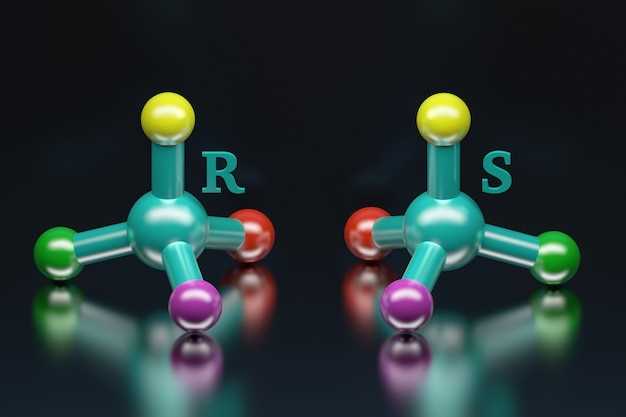
Discover the benefits of Atorvastatin and Ezetrol!
Are you looking for an effective way to lower your cholesterol levels? Look no further! Atorvastatin and Ezetrol are two popular medications that can help manage your cholesterol and improve your overall heart health.
Atorvastatin is a powerful statin that works by blocking the production of cholesterol in the liver. It helps to reduce LDL (bad) cholesterol and triglyceride levels while increasing HDL (good) cholesterol.
Ezetrol works differently by preventing the absorption of cholesterol in the intestines. It helps to lower LDL cholesterol without affecting HDL cholesterol levels.
Both medications are proven to be effective in reducing cholesterol levels and reducing the risk of heart disease. However, it’s important to consult with your doctor to determine which medication is right for you.
Don’t let high cholesterol hold you back from living a healthy life. Talk to your doctor about Atorvastatin and Ezetrol today!
Comparison of Atorvastatin and Ezetrol
Atorvastatin and Ezetrol are two commonly prescribed medications used to treat high cholesterol. While they both work to lower cholesterol levels, they have different mechanisms of action and may have different effects on the body.
What is Atorvastatin?
Atorvastatin is a type of medication known as a statin. Statins work by blocking an enzyme in the liver that is responsible for producing cholesterol. By lowering cholesterol levels, Atorvastatin can help reduce the risk of heart disease and other cardiovascular problems. It is often prescribed to individuals with high levels of LDL (bad) cholesterol or individuals who have a history of heart disease.
What is Ezetrol?
Ezetrol, also known as ezetimibe, is a different type of medication that works to lower cholesterol levels by blocking the absorption of cholesterol in the small intestine. It inhibits a protein called NPC1L1, which is responsible for transporting cholesterol from food into the bloodstream. By blocking this protein, Ezetrol helps to reduce the amount of cholesterol that is absorbed by the body. It is often prescribed in combination with a statin like Atorvastatin to further lower cholesterol levels.
While both Atorvastatin and Ezetrol can effectively lower cholesterol levels, they work in different ways. Atorvastatin primarily targets the production of cholesterol in the liver, while Ezetrol focuses on decreasing the absorption of cholesterol from food. As a result, the two medications can be used together to achieve optimal cholesterol-lowering effects.
| Atorvastatin | Ezetrol |
|---|---|
| Works by blocking liver enzymes responsible for cholesterol production | Blocks the absorption of cholesterol in the small intestine |
| Often prescribed to individuals with high LDL cholesterol or history of heart disease | Used in combination with a statin to further lower cholesterol levels |
| Potential side effects include muscle pain, liver problems, and digestive issues | Potential side effects include diarrhea, muscle pain, and allergic reactions |
It is important to consult with a healthcare professional to determine the most appropriate medication and dosage for your specific needs. They will consider factors such as your cholesterol levels, medical history, and any other medications you may already be taking.
What is Atorvastatin?
Atorvastatin is a medication that belongs to a class of drugs called statins. It is primarily used to lower cholesterol and triglyceride levels in the blood. Atorvastatin works by reducing the production of cholesterol in the liver and by helping to remove cholesterol that has built up on the walls of the arteries.
Atorvastatin is commonly prescribed to patients who have high levels of cholesterol, which is a risk factor for heart disease and stroke. It is also used to prevent cardiovascular events in people who have existing heart conditions. Atorvastatin is often prescribed in combination with lifestyle changes such as diet and exercise to effectively manage high cholesterol levels.
When taken as prescribed, Atorvastatin can help to lower LDL (bad) cholesterol levels and increase HDL (good) cholesterol levels in the blood. This can reduce the risk of plaque buildup in the arteries and improve overall cardiovascular health.
Like any medication, Atorvastatin may cause side effects, although not everyone experiences them. Common side effects of Atorvastatin may include muscle aches, digestive problems, and liver function abnormalities. It is important to discuss any concerns or potential side effects with a healthcare provider before starting Atorvastatin.
Overall, Atorvastatin is a widely prescribed medication that can effectively lower cholesterol levels and reduce the risk of heart disease and stroke. It is important to take Atorvastatin as directed by a healthcare provider and to make any recommended lifestyle changes to achieve optimal results.
Effectiveness of Atorvastatin
Atorvastatin, also known by the brand name Lipitor, is a medication used to lower cholesterol levels and prevent cardiovascular disease. It belongs to a class of drugs called statins, which work by inhibiting an enzyme involved in the production of cholesterol in the liver.
How does Atorvastatin work?

Atorvastatin works by blocking an enzyme called HMG-CoA reductase, which is responsible for the production of cholesterol in the liver. By reducing the amount of cholesterol produced, Atorvastatin helps to lower the levels of LDL cholesterol, also known as “bad” cholesterol, in the blood.
Benefits of Atorvastatin
Atorvastatin has been proven to be highly effective in lowering cholesterol levels and reducing the risk of cardiovascular events such as heart attacks and strokes. Clinical studies have shown that Atorvastatin can significantly decrease LDL cholesterol levels and increase HDL cholesterol, also known as “good” cholesterol.
- Reduces LDL cholesterol levels: Atorvastatin has been shown to lower LDL cholesterol levels by up to 60% in some cases.
- Increase HDL cholesterol levels: Atorvastatin can also increase HDL cholesterol levels by up to 15%, which helps to improve the overall cholesterol profile.
- Reduces the risk of cardiovascular events: By lowering cholesterol levels, Atorvastatin reduces the risk of heart attacks, strokes, and other cardiovascular events.
- Prevents progression of atherosclerosis: Atorvastatin has been shown to slow down the progression of atherosclerosis, a condition characterized by the build-up of plaque in the arteries.
Overall, Atorvastatin is considered to be a highly effective medication for managing high cholesterol and reducing the risk of cardiovascular disease. It is important to note that Atorvastatin is typically used as part of a comprehensive treatment plan that includes lifestyle changes such as a healthy diet, regular exercise, and smoking cessation.
Effectiveness of Atorvastatin
Atorvastatin is a widely used medication for managing high cholesterol levels and reducing the risk of cardiovascular diseases. Numerous studies have shown the effectiveness of Atorvastatin in lowering LDL cholesterol levels, which is commonly known as “bad” cholesterol.
Reduces LDL Cholesterol Levels:
Atorvastatin works by inhibiting an enzyme called HMG-CoA reductase, which plays a crucial role in the production of cholesterol in the liver. By reducing the production of cholesterol, Atorvastatin helps lower LDL cholesterol levels in the blood, thus reducing the risk of plaque buildup in the arteries.
Increases HDL Cholesterol Levels:
In addition to lowering LDL cholesterol, Atorvastatin has been found to increase HDL cholesterol levels, commonly referred to as “good” cholesterol. Higher levels of HDL cholesterol are associated with a reduced risk of heart disease.
Prevents Cardiovascular Diseases:
Atorvastatin has shown significant effectiveness in preventing cardiovascular diseases, such as heart attacks and strokes. By lowering LDL cholesterol levels and reducing inflammation, Atorvastatin helps protect the arteries from plaque buildup, thereby reducing the risk of cardiovascular events.
Improves Endothelial Function:
Studies have also demonstrated that Atorvastatin improves endothelial function, which is essential for maintaining healthy blood vessels. By enhancing the function of the endothelium, Atorvastatin helps promote proper blood flow and reduces the risk of blood clots.
Additional Benefits:
Besides its primary role in managing cholesterol levels, Atorvastatin has shown potential benefits in other areas. Some studies suggest that Atorvastatin may have anti-inflammatory properties, helping to reduce inflammation in the body. It has also been associated with a lower risk of certain types of cancer, although further research is needed to establish a definitive link.
In conclusion, Atorvastatin has proven to be highly effective in managing high cholesterol levels and reducing the risk of cardiovascular diseases. It not only lowers LDL cholesterol levels but also increases HDL cholesterol levels, improves endothelial function, and offers potential additional benefits. If you have concerns about your cholesterol levels, speak to your healthcare provider about whether Atorvastatin may be a suitable option for you.
Effectiveness of Ezetrol
Ezetrol, also known as ezetimibe, is a medication commonly used to lower cholesterol levels in the body. It works by reducing the amount of cholesterol absorbed from food in the intestines, which in turn lowers the overall cholesterol levels in the bloodstream.
Studies have shown that Ezetrol is effective in reducing LDL cholesterol, also known as “bad” cholesterol, as well as total cholesterol levels. It has been found to work well in combination with other medications, such as statins, to further reduce cholesterol levels.
Benefits of Ezetrol:
– Ezetrol is effective in reducing LDL cholesterol levels by up to 20-25%, regardless of the initial cholesterol levels.
– It can also lower total cholesterol levels by about 15-20%.
– Ezetrol is well-tolerated and generally considered safe for long-term use.
Important Considerations:
– While Ezetrol is effective in lowering cholesterol levels, it is important to note that it should not be used as a substitute for lifestyle changes, such as adopting a healthy diet and increasing physical activity.
– It is important to follow the prescribed dosage and to consult with a healthcare professional before starting or stopping any medication.
– Regular monitoring of cholesterol levels is recommended to assess the effectiveness of Ezetrol and to make any necessary adjustments to the treatment plan.
In conclusion, Ezetrol is an effective medication for reducing LDL cholesterol and total cholesterol levels. It is well-tolerated and can be used in combination with other medications to achieve optimal cholesterol control. However, it should be used in conjunction with lifestyle changes for maximum effectiveness and long-term management of cholesterol levels.
Side Effects of Atorvastatin
Atorvastatin is a medication commonly used to lower cholesterol levels and reduce the risk of heart disease. While it is generally well-tolerated, there are some potential side effects to be aware of.
Common Side Effects

Some common side effects of atorvastatin include:
- Muscle and joint pain
- Headache
- Nausea
- Dizziness
- Diarrhea
- Upset stomach
Serious Side Effects
Although rare, there are some serious side effects that may occur with atorvastatin use. If you experience any of the following symptoms, it is important to seek medical attention immediately:
- Unexplained muscle pain or weakness
- Yellowing of the skin or eyes (jaundice)
- Dark-colored urine
- Unusual tiredness or fatigue
- Difficulty breathing or swallowing
- Swelling of the face, lips, tongue, or throat
It is important to note that this is not an exhaustive list of side effects and others may occur. If you have any concerns or questions about the side effects of atorvastatin, consult with your healthcare provider.
Side Effects of Ezetrol
Ezetrol, also known as ezetimibe, is a medication used to lower cholesterol levels in the blood. While it is generally well-tolerated, there are potential side effects that should be considered.
Gastrointestinal Effects
Some individuals may experience gastrointestinal issues while taking Ezetrol. These can include diarrhea, upset stomach, abdominal pain, and constipation. If these symptoms persist or become severe, it is important to consult a healthcare professional.
Allergic Reactions
In rare cases, individuals may have an allergic reaction to Ezetrol. Signs of an allergic reaction can include rash, itching, swelling of the face or throat, severe dizziness, and difficulty breathing. If any of these symptoms occur, immediate medical attention should be sought.
It is important to note that these side effects are not exhaustive, and other side effects may occur. Consult a healthcare professional for more information.
Overall, Ezetrol is a generally safe and well-tolerated medication for lowering cholesterol levels. However, it is important to be aware of the potential side effects and to seek medical advice if any concerns arise.
